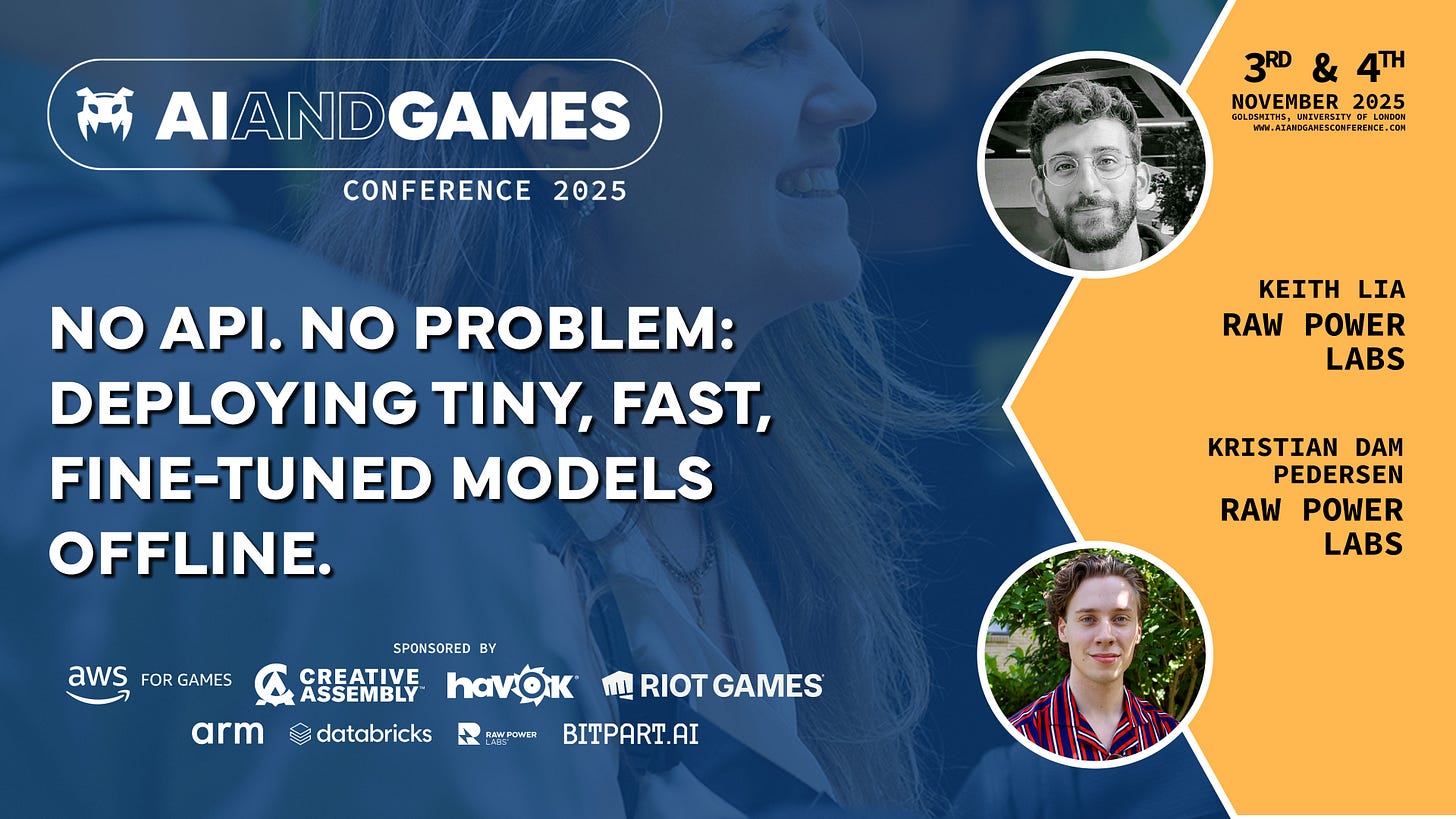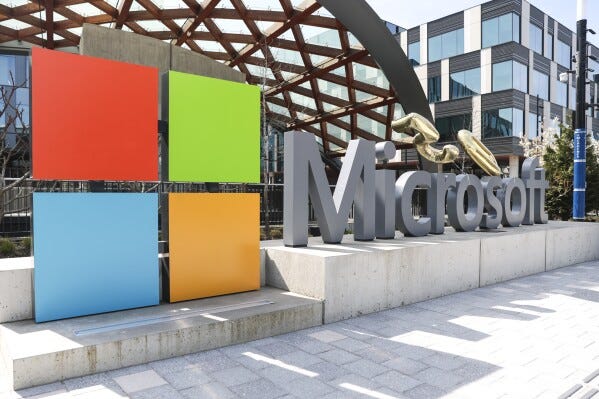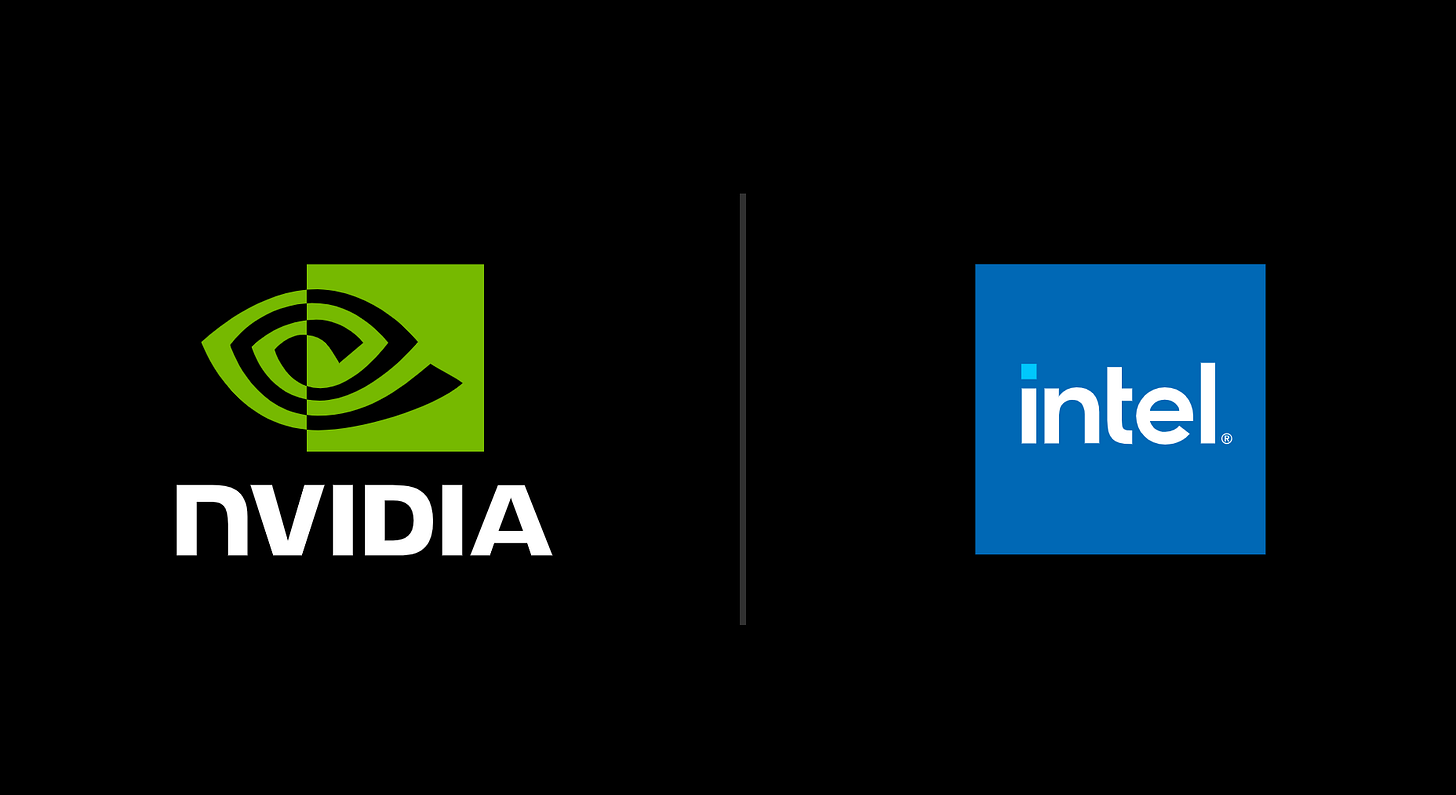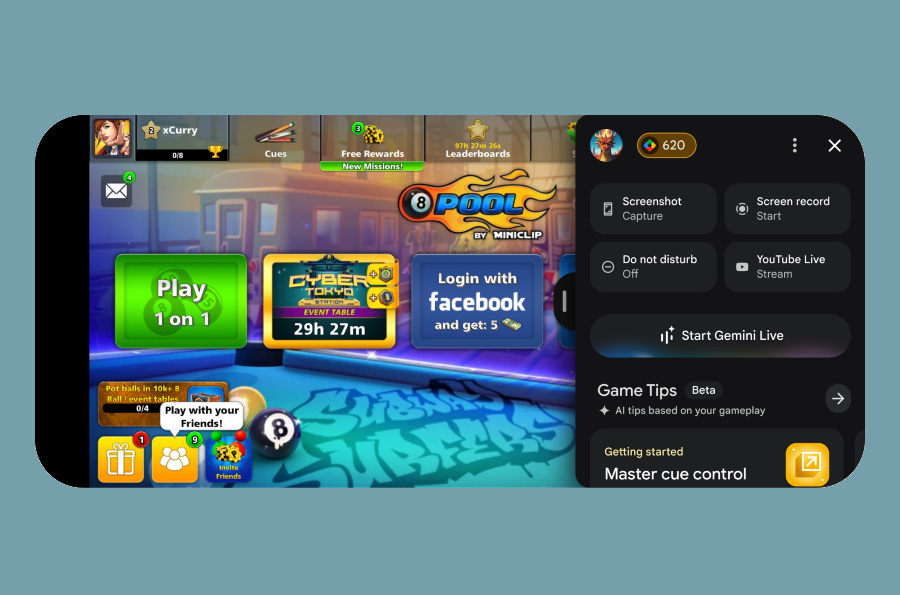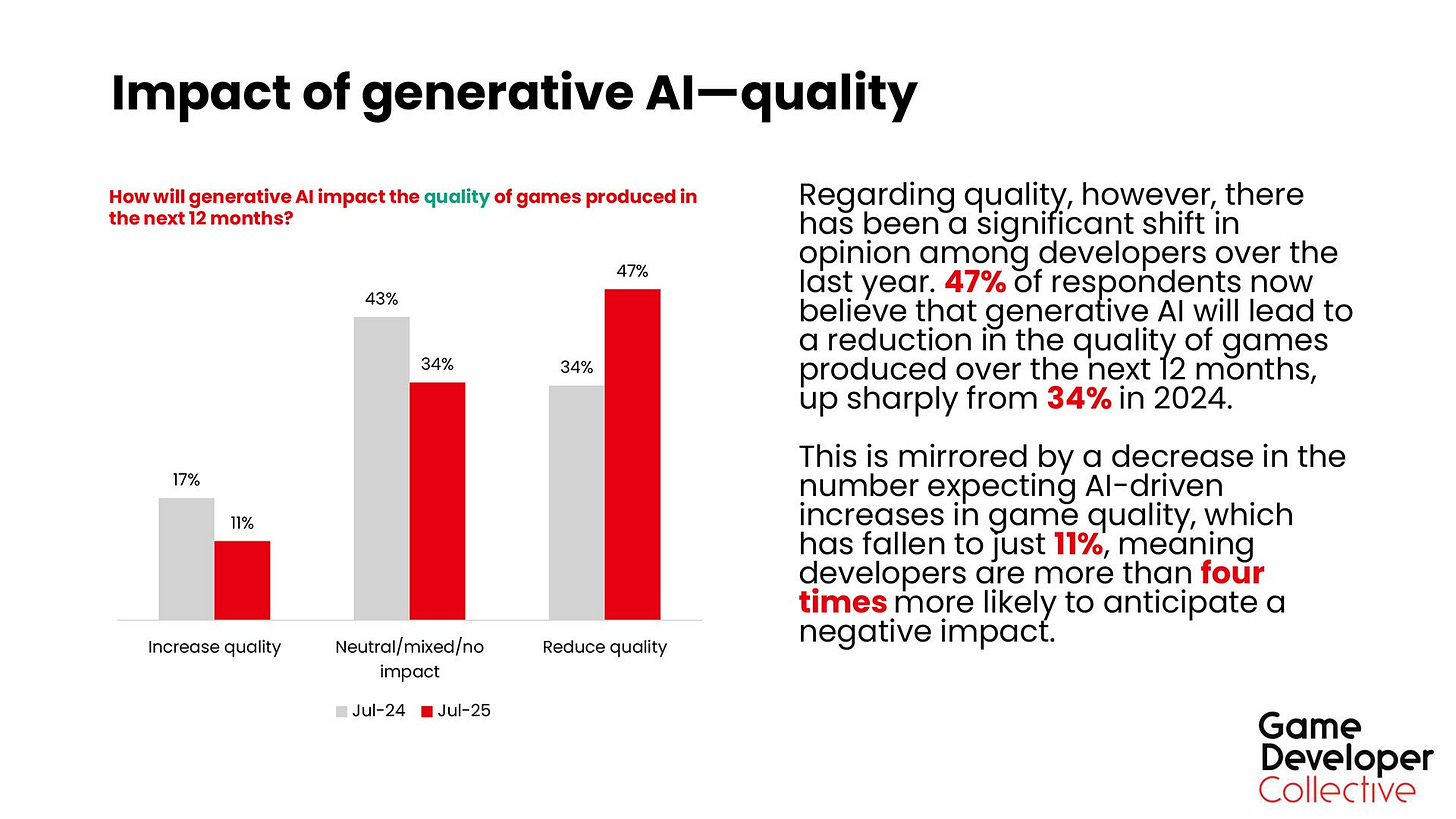A Generative AI Gamble for the EA Buyout? | 01/10/25
Plus Nvidia props up Intel, Game Devs worry about Generative AI quality, and the Xbox Rog Ally X costs HOW MUCH?!?!
The ugly financing of EA’s buyout has some weird implications.
It’s not just players, game devs are worried about generative AI impact.
But 51% of Japanese game studios are exploring the technology.
If you want an Xbox Rog Ally X, you‘ll need to re-mortgage your house.
Ha, like anyone has a mortgage…
The AI and Games Newsletter brings concise and informative discussion on artificial intelligence for video games each and every week. Plus summarising all of our content released across various channels, like our YouTube videos and in-person events like the AI and Games Conference.
You can subscribe to and support AI and Games, with weekly editions appearing in your inbox. If you'd like to work with us on your own games projects, please check out our consulting services. To sponsor, please visit the dedicated sponsorship page.
Good lord what do you mean it’s October? I mean yes, hello and welcome to the AI and Games newsletter - the first of this month! It’s been a pretty weird and wacky couple of weeks for me, and in fact I’m finishing writing this issue in a coffee shop in Dublin, Ireland, as I get ready to present at the NEXUS conference tomorrow. Slàinte!
For this week’s issue, I’m caught between two events, with Pocket Gamer Connect Helsinki next week. Meanwhile last week we not only had the inaugural issue of The Take, but also a bonus issue with all of the AI and Games Conference talks announced so far. This meant we haven’t covered any of the big news stories of recent weeks, so I figured let’s spend this issue solely on the news, and get you all up to speed on what’s been happening.
Fun Fact: The term ‘slàinte’ is a Gaelic word meaning ‘health’ and is typically used as a drinking toast. It is common in both Scottish and Irish Gaelic, but savvy linguists will have noticed I spell it the Scottish way. In Ireland you spell it ‘sláinte’. The difference is solely the slight accent over the ‘a’, which makes a subtle change to how it is pronounced.
And here you thought we only taught you about AI around here…
Follow AI and Games on: BlueSky | YouTube | LinkedIn | TikTok
Announcements
Some quick announcements before we get into all that sweaty news…
More AI and Games Conference Talks!
Last week I took the liberty of breaking my own rules of publishing newsletters on a Wednesday with a bumper issue breaking down all of the talks we have announced in the past few weeks. But there is still plenty more coming your way. So let’s announce some more!
How to Bully AI into Delivering Meaningful Gameplay
Ben Ackland, Thomas Keane / Meaning Machine
Meaning Machine are a small UK firm that are helping lead the charge on how to explore the use of large language models (LLMs) in ways that make sense for games. Working not only on their upcoming murder mystery title Dead Meat, but also their own LLM-powered AI engine for delivering character behaviour.
We keep bumping into each other at events ranging from GDC to Devcom as we’re both presenting on stage. So it’s a pleasure to welcome Ben and Thomas to ours as as they discuss their efforts to force - or as they put it, ‘bully’ - LLMs to behave in ways that designers intend for.
No API. No Problem: Deploying Tiny, Fast, Fine-Tuned Models Offline
Keith Lia, Kristian Dam Pedersen / Raw Power Labs
Next up, we’re welcoming our associate sponsors Raw Power Labs with Keith Lia and Kristian Dem Pedersen taking the stage. This talk is focussed on experimental work in creating generative models for games that are fast, cheap, and private. This is part of the broader trend of moving AI models - notably generative models - away from running on cloud servers and similar infrastructures. This talk will dig into Raw Power Labs effort into building their own local systems and tech stacks.
Supporting Thousands of Simulated NPCs in the Open World of Kingdom Come: Deliverance 2
Petr Smrček / Warhorse Studios
Last but most certainly not least, we announce the first of two talks from none other than Warhorse Studios, creators of Kingdom Come: Deliverance 2. Petr Smrček takes the stage to talk about one of the biggest challenges they faced in developing KCD2, and that’s running an ongoing simulation of over 2000 NPCs at once. This talk will sit nicely alongside our previously announced talks from Martin Weusten at Ubisoft on Avatar, and also Pablo Armando Rodriguez Codes from Avalanche.
AI (and Games) in the News
Alrighty, since we last dug into the news a lot has gone down. Naturally we’ll carve out a good chunk of time to the big story of the past week that is the Electronic Arts buyout - and the AI implications laced within the purchase. But there’s plenty more to talk about from recent weeks as well. Let’s do it!
Microsoft Rescinds AI for Genocide
A few months back we highlighted the ongoing boycott raised at Microsoft, but specifically targeting the Xbox brand, in protest of the well-documented use of the tech giants tools - including their Azure AI services - by the Israeli government in their ongoing campaign of genocide against the people of Palestine.
Microsoft have now finally reacted to this - perhaps a reflection of the broader political shifts as the United Nations has finally acknowledged the quiet thing out loud - and rescinded the use of some services. Though it strikes me they’re still paying for their Microsoft 365 subscription.
All of this comes from recent reporting by The Guardian in the UK that confirmed what had previously been reported in late 2024: that the Israeli government - or specifically the 8200 Unit, which is their spy agency - was using Microsoft’s Azure services as means to track and process communications by Palestinian citizens as a broader mass surveillance operation - at one point holding over 8,000 terabytes of data in Microsoft datacentres in the Netherlands.
The Xbox boycott by the Palestinian BDS National Committee (BNC) is still in effect. The current death toll in Palestine is estimated to be around 65,000 people.
Xbox Rog Ally Launches in October for $1000
Meanwhile Xbox has announced that their Rog Ally handheld devices launch on October 16th, with pre-orders opening (and selling out) last week. As detailed on the Xbox Wire, the device will retail for $599.99 for the regular device, and a staggering $999.99 for the Rog Ally X. Which in European money is £499/€599.99 for the diet model, and £799/€899.99 for the beefy boy.
Let’s not sugarcoat it, this is a pretty wild cost for a portable Xbox device - even if the Ally X has some AI rendering capabilities built-in. With the Ally X costing double that of a Switch 2 or a Steam Deck OLED. Sure, in terms of actual tech specs the Rog Ally X is a superior piece of hardware to the Steam Deck OLED, but I’m curious what market exists - outside of gouging existing customers - that is going to be buying these devices moving forward.
I have to admit, as someone who has invested in their Xbox library since the 360 generation I was curious, but a grand is a bit too spicy even for me. I don’t think I can justify that from our generous premium subscriber contributions!
RLVG @ RLC 2025
So that’s a mouthful huh? To explain, the Reinforcement Learning and Video Games workshop recently ran at the Reinforcement Learning Conference (RLC) in Edmonton, Canada. The whole series of talks with speakers from Sony AI, the University of Alberta, Google DeepMind and more are available to watch online for free. You might need to squint to see the slides - the perils of an academic conference recording - but there’s plenty of interesting stuff here to check out.
EA’s $55bn Hedges its Bets on AI?
Of course the big story that’s been rocking the video game world this week is the buyout of Electronic Arts to the tune of $55bn to take the company off the stock market and turn it private. Thus leading many to question whether they still want to pre-order Battlefield 6 knowing that a good chunk of that cash will make it’s way into the Saudi Arabia Public Investment Fund.
I’ll let the Video Games Industry Memo focus on the larger political issues at play here, instead I want to focus on one aspect of that acquisition deal. As raised by Jason Schreier among others, a critical part of the $55bn acquisition is that the various parties involved - investment firm Affinity Partners (owned by Jared Kushner, the son-in-law of President Donald Trump), private equity firm Silver Lake and the Saudi Arabia Public Investment Fund (PIF) - have only raised around $36bn of equity for the deal. The remaining ~$20bn is being driven by a loan provided by JPMorgan Chase.
So what does that mean? Well a loan needs re-paid right? So the soon-to-be new owners will need to find a way to raise cash quickly in order to pay that off. After all, interest rates go after everyone, even folks connected to the US administration.
If It’s in the Game, We’ll Make You Pay For It: Now you might think surely with Kushner being cushty with the US administration, that would help with this side of things? Well, not quite. Reporting from Bloomberg indicates that the loan is rated in the Single-B range, meaning that it’s classified as a ‘junk’ loan. This will incur a higher rate of interest than other loans that could have been struck up with the bank given JPMorgan Chase will have deemed the whole deal to be rather speculative and high risk. Meaning that now there’s an even bigger challenge facing the owners of paying off that interest.
This suggests that there will be an effort to conduct (more) mass layoffs and (even) more aggressive monetisation strategies from the publisher in order to both recoup the costs of the loan, and pay the interest on top of it.
But fear not! For as detailed in a report over on the Financial Times, (and summarised by Rock Paper Shotgun) insiders at the publisher state the great white hope they’re hanging on all of this is…
Wait for it…
…reducing development costs with generative AI!
If you’re new to this publication you are forgiven for being confused by my cynicism, but given thus far we have seen no documented evidence of widespread and significant cost savings driven by generative AI adoption in AAA game productions, hanging your entire investment on this strategy seems… short-sighted.
But EA Does Fantastic Work in AI: Now don’t get me wrong, EA have been finding gains in using generative AI - we even saw this first-hand at our 2024 conference with the AgentMerge project. But how much this translates into clear financial gains is often unclear and could take years to recognise. When you consider that this is meant to somehow save development costs to help recoup a loan that prior to interest payments accounts for 35% of the purchase deal, you can perhaps understand my lack of faith.
EA have been more than happy to discuss their efforts in generative AI to accrue funding. Their investor day presentation in 2024 was a rather shoddy effort showcasing a mishmash of incomplete and fabricated demos that at that time I argued did the company a disservice: especially when you consider the amazing work their AI teams already do in a variety of game projects, often in conjunction with their SEED research division.
Running with the Playbook: This is all part of the broader generative AI playbook that is happening on the regular these days: perpetuating that the technology is moving at such a rate that it can achieve these cost savings and broader fiscal benefits when there is little to no evidence of this. Believe me, if games studios could bring down the production costs of a AAA budget by 30/40/50% without any degradation in workers rights and final product through the use of generative AI they would be singing from the rooftops about it.
And yet, silence.
Reading between the lines all of this feels like a very significant effort to line the pockets of all investors by, in the long term, effectively gutting the IP and value of Electronic Arts, and then seeking to maximise as much profit from what little is left.
Like virtually the rest of the games industry - outside of some C-Suites - I am thinking this is a pretty terrible deal that in the long run will heavily impact the livelihoods of many working at EA studios. As I often joke in presentations: I’ve never seen AI tools salvage poor business practice. If anything it only highlights and exacerbates it.
That Meta Smart Glasses Demo…
Okay, I wasn’t going to talk about this but good lord did this make me laugh. We’re in a new age of annoying tech bros wearing dumb peripherals on their face hoping to look cool. It’s only been a decade or so since we wanted to smack everyone wearing Google Glass, not it’s time to have a crack at everyone everyone trying out Meta (Facebook’s) wearables.
Just because you get a fashion brand behind it doesn’t make it any less stupid - not to mention facing significant legal issues when deployed in Europe!
If you missed this, check out the video above in which two separate demos designed to show case the Meta Ray-Ban glasses and their intelligence capabilities failed in the moment: both in trying to respond to a WhatsApp call, but also in trying to provide instructions on cooking a heavily stage recipe.
But I brought this up because afterwards Andrew Bosworth, the company’s CTO, stated in an Instagram AMA (reported on at Engadget), what the real issues were, and I’m just… flabbergasted that, from a product testing perspective, that this even got this far.
Notably in the recipe segment, guest chef Jack Mancuso blamed the wifi for the AI failing to respond to his inputs. Now everyone knew that was bullshit, but the situation was much more complex. To quote Mariella Moon at Engadget:
Apparently, when the chef said “Hey Meta, start Live AI,” it fired up every single Meta Ray-Ban’s Live AI in the building. And since the event was all about the company’s smart glasses, there were a lot of them in the venue at the time. The company had also routed Live AI’s traffic to its dev server to isolate it, but it ended up routing the Live AI traffic of everyone’s glasses in the building to its server. “We DDoS’d ourselves, basically,” he said. He continued that it didn’t happen at rehearsal, because there weren’t as many people wearing the glasses when they tested it out.
How do you reach a point in product development where you haven’t considered the situation where a multiple copies of the same device - which is designed to respond to voice commands - are in earshot of a single loud statement? Surely there was an effort to ensure that the device recognises where the command is coming from?
Ugh, it’s hilarious. It just reminds me of the whole ‘Xbox Sign Off’ prank that dominated the early months of the Xbox One…
Nvidia Invest $5 Billion into Intel
While everyone is talking about Kushner and the Saudi’s gutting EA, the other big story that caught my attention was, courtesy of Reuters, that Nvidia has joined the US government in investing in chip company Intel. Now taking an overall 4% share of the company. As mentioned, this is after the US government took a 10% equity stake back in August: an effort to shore up US-based development of AI, acting in direct competition with China - with The US also holding Nvidia to a deal where sales of AI chips to China incurs a 15% tax directly to the White House.
While Intel have invested more recently in AI-based chip deployments, they have largely fell behind other companies given they a CPU-focussed business (the AI compute market has been driven by GPUs). While they have since pivoted more into AI compute, their efforts have been less successful than Nvidia. But now with this investment, markets reacted with a 23% jump in the share price.
Google Gets in On the Gaming Sidekick Trend
As reported on The Verge, Google are now launching a ‘Gemini Live’ tool to help you play games on Google Play. This is pretty much the same as the efforts by Nvidia and Xbox in recent months - where you have an assistant that will respond to questions you have over how to play a game.
Personally, this strikes me as having very little value to players, other than highlighting that maybe Gemini can be useful for something. I doubt it’s going to help me circumvent the monetisation laced through mobile gaming that largely keeps me away from engaging with it. But hey, at least it’s a step up from the whole ‘Darth Vader in Fortnite’ thing.
Unity Forms an ‘AI Council’
The company behind the beleaguered game engine has been exploring various applications of AI for some time now. Building new tools, new features, and many an abandoned initiative along the way. So it quietly snuck out late last month that the company has announced a new AI council to help “accelerate product innovation”. To quote the press announcement:
“AI is transforming our industry and accelerating the volume and pace of game creation,” said Matt Bromberg, President and CEO of Unity. “We’re dedicated to providing the best platform in the world for the next era of interactive content creation. We’re excited to welcome Jia and Julian, and look forward to their insights.”
Right now the council is just two people. I feel they need more than that… But the two initial members are of quality, and one is a friend of all things AI and Games!
First up Jia Li, co-founder of LiveX AI - an AI startup in the US focussed on creating intelligent agents for customer interactions - and alongside her is Julian Togelius, both of New York University and the Artificial Intelligence and Games Summer School - which I presented at back in June.
So yeah, will be interesting to see what comes of this in the future.
Lara Croft’s AI Clone is Silenced!
A couple weeks back we talked about a situation where Francoise Cadol - the French voice actor of Lara Coft - had called out publisher Aspyr for using AI to reproduce missing lines of dialogue for the French dub of Tomb Raider 4-6 Remastered. Not just raising legal action against the studio, but also calling them out quite definitively in Le Parisien newspaper - I love the French, they don’t fuck about do they?
Well the publisher has quietly gone ahead and updated the game to remove unspecified AI content. To quote the release notes from September 19th:
A Hotfix for our most recent patch has just been released to address unauthorized AI generated content.
We’ve addressed this issue by removing all AI voiceover content, while retaining the improvements made in the previous update.
We apologize for any inconvenience this may have caused. Please reach out to our customer support site with any issues.
Thank you for your patience and support.
Do they state it is related to Cadol’s legal action? No. Do I think that’s what this was about? Absolutely.
While there are obvious legal issues here - adopting Cadol’s voice without consent and compensation - there’s also the reputational damage this causes for the studio. We’ve talked a couple times in the past year or so about the perceived degradation in quality that consumers feel about the use of generative AI.
All of this has created a narrative - and work - for Aspyr to address, and perhaps it would just have been cheaper in the long run to simply ask Cadol to come in and re-record the lines?
But yeah, speaking of the perceived degradation of quality…
Developers are Worried Generative AI Lowers the Quality of Games
While I have discussed in previous issues that consumers are worried about the impact of generative AI on game quality, I knew that was a sentiment echoed by actual developers. Only I had heard that anecdotally, I didn’t have any data to point out.
So thankfully Omdia, a subsidiary of Informa who also organise the Game Developer’s Conference (GDC) - or is it the Festival of Games now? I dunno - have done the hard work so I don’t have to.
For the life of me I can’t find the actual report, only Game Developer’s reporting on it -given they’re a sibling organisation of Omdia. But the big takeaway is that game developers surveyed (sample size unknown) stated that their concerns of generative AI reducing quality had increased from 34% in 2024, to 47% in 2025.
Friends of AI and Games Hilary Mason from Hidden Door, and Mike Cook from my old employer King’s College London, highlighted that from their perspectives this is down to both the technology itself and the faith people have in executives using the technology effectively. With Mason deliciously calling the performance of LLMs “aspirationally mid”, while Cook suggested that the games industry as a whole “doesn’t have a good track record of making decisions based on what’s best for a game, or listening to feedback from their employees.”
Big in Japan?
But despite these concerns, a recent survey of 54 games companies by the Computer Entertainment Supplier’s Association in Japan (the organisation that runs the Tokyo Games Show) suggests that 51 percent of companies are using AI. This somehow works out as 27.5 businesses? I don’t know how that works…
But yeah as reported both by Vikki Blake at GamesIndustry.biz and Ed Nightingale at Eurogamer, it’s noted that the most common use is for generating images and other visual assets. With story and text generation behind that. Particularly given there is little to no longer recourse against the use of generative models in Japan, this doesn’t surprise me. But I’ll be interested to see what practical, meaningful outcomes emerge from this.
Embracer(ing) Generative AI in a Sustainable Way?
To wrap things up, we heard a sensible take on the deployment of generative AI from Embracer - a company not exactly known for smart business decisions of late.
For those unfamiliar, Embracer is the holding company that famously bought up every studio it could in a botched effort to make a $2 billion deal with the Saudi Investment Fund via the organisation Savvy Games. Since then they’ve been trying to right the ship as their portfolio was simply too vast for what they could actually afford.
Anywho, as reported by Stephen Totilo above over at Game File, and again by Ed Nightingale at Eurogamer, the new CEO of the organisation Phil Rogers has suggested that the company will explore AI in a sensible way. To quote:
In an industry defined by escalating development costs and limitless player expectations, the question is no longer if a company will adopt a technology like AI, but how it leads with it? How we take Embracer forward across Fellowship? Our answer is a smart implementation of generative AI in ethical and sustainable ways.
Of course he said this the same week as the aforementioned story about the AI generated voice lines in the Tomb Raider remaster. A title published by an Embracer subsidiary…
I mean yeah, he’s new in the job. Maybe give him time!
Wrapping Up
Oh good grief that was a lot of news, and the EA story didn’t help matters! That’s us for now, thank you for reading all the way to the end, and now I’ve gotta go and finish preparing a talk to deliver on stage tomorrow morning.
Stay safe, take care, and I’ll be back!







